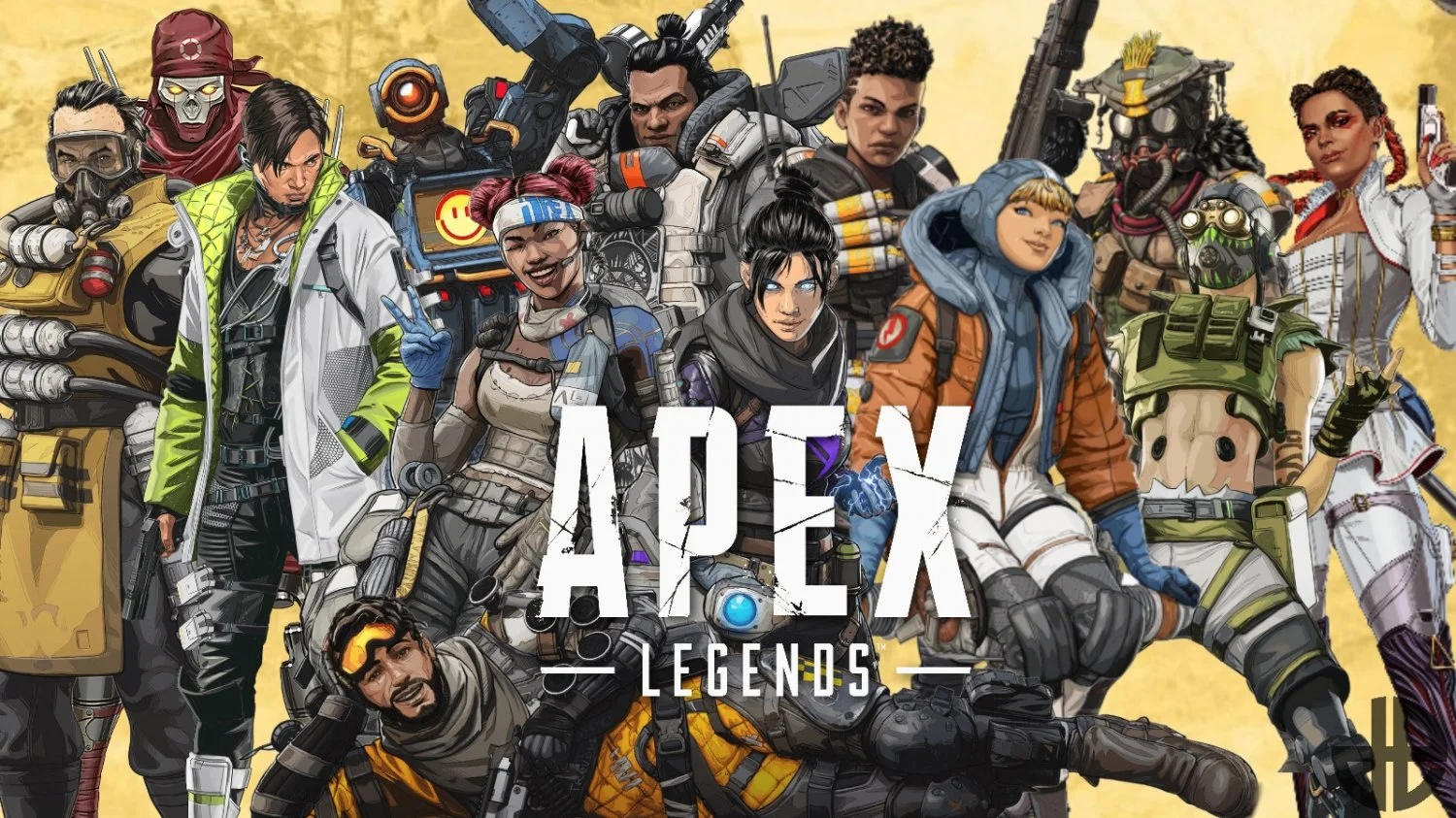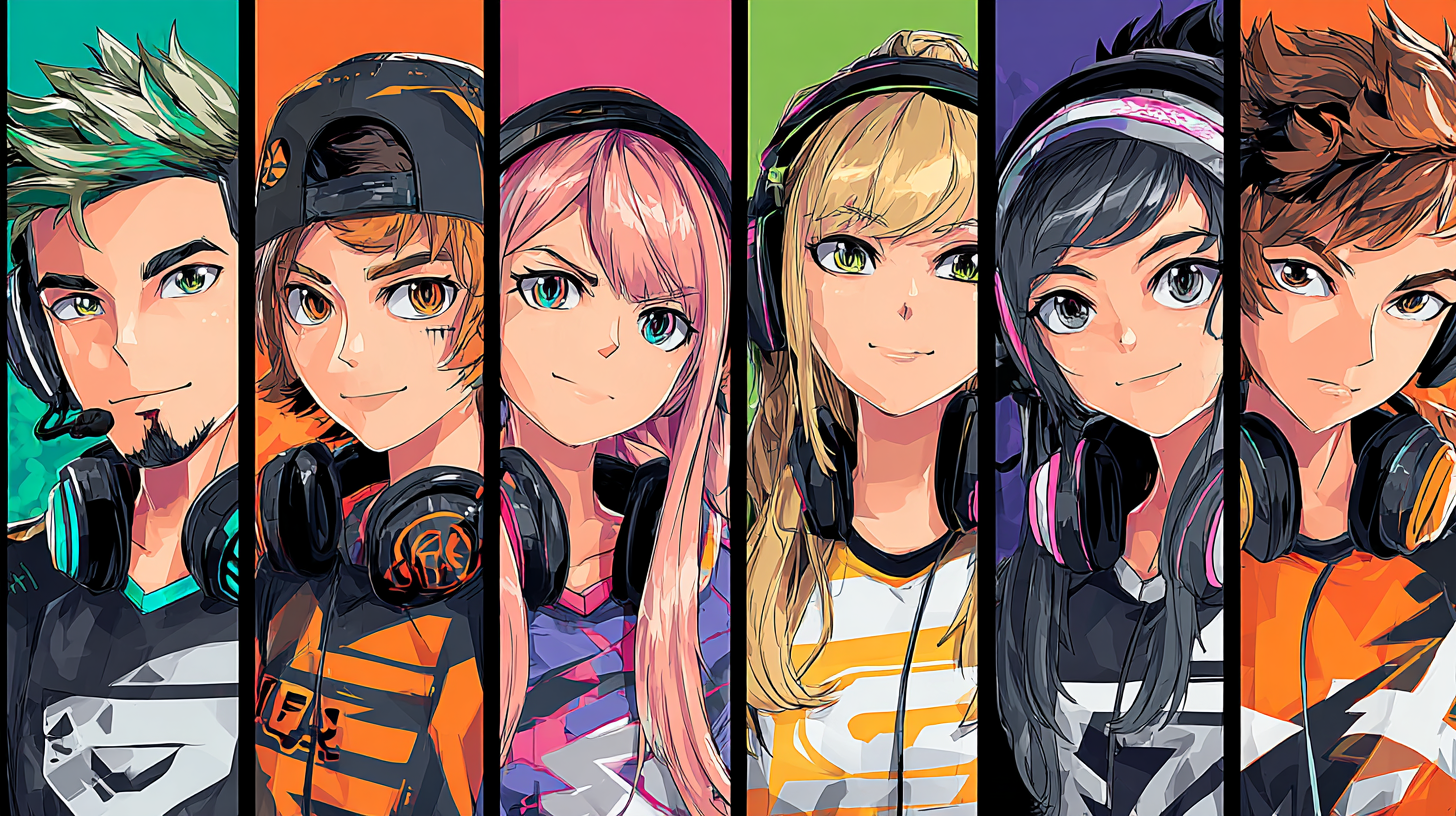"Sorry, I can't play with you – I'm on PlayStation and you're on PC." This frustrating limitation has prevented countless gaming friendships and fractured communities for decades. Platform exclusivity meant choosing your gaming device wasn't just about hardware preferences – it was choosing which friends you could play with.
That era is ending. Cross-platform gaming is rapidly becoming the default expectation rather than a special feature. In 2025, the walls between PC, console, and mobile players are crumbling, creating unified gaming experiences where your platform choice no longer determines your social circle.
Introduction
Cross-platform play – the ability for players on different platforms to play together in the same matches – solves one of gaming's most persistent social problems. When games support crossplay, the friend on Xbox can team up with the friend on PlayStation and the friend on PC. Player bases unify, matchmaking improves, and gaming becomes more accessible to everyone.
This article examines the technical challenges that made cross-platform play difficult, how these barriers are being overcome, the massive social benefits unified gaming creates, and what the future holds as cross-platform becomes universal. Whether you're a competitive player, a casual gamer, or someone who just wants to play with friends regardless of their device, understanding the cross-platform revolution matters.
While finding compatible teammates can be challenging, platforms using swipe-to-match interfaces and verified gaming profiles are making it easier to connect with compatible players regardless of what device they use.
The Technical Challenges of Cross-Platform Play
Creating seamless cross-platform experiences requires solving several complex technical problems.
Input Method Balance
Different platforms use different input methods with distinct advantages:
Mouse and keyboard precision: PC players have pixel-perfect aim and rapid 180-degree turns that controllers can't match. In shooters, this creates significant competitive advantage.
Controller aim assist: Console games compensate for controller limitations with aim assist, but this creates balance issues when controllers compete against mouse/keyboard in the same match.
Mobile touch controls: Touchscreen controls are fundamentally different from both controllers and keyboard/mouse, creating even larger skill gaps and balance challenges.
Modern solutions include:
- Input-based matchmaking that groups players by control method
- Balanced aim assist that provides controller parity without being overpowered
- Separate ranked queues for different input methods in highly competitive games
- Optional crossplay that lets players disable cross-platform matching if desired
Performance Disparities
Different platforms have vastly different performance capabilities:
Frame rate advantages: High-end PCs running at 240+ FPS have smoother gameplay and faster reaction times than consoles at 60 FPS or mobile devices at 30 FPS.
Visual clarity: Higher resolution and graphics settings on PC can reveal details that console or mobile players can't see, creating information advantages.
Loading time differences: SSD-equipped systems load faster than HDD systems, creating timing advantages in games where loading into matches quickly matters.
Solutions emerging:
- Server-side frame rate caps that limit competitive advantages
- Graphics parity requirements ensuring all platforms see the same essential information
- Cloud gaming equalizing performance across devices
- Separate queues for competitive play with strict hardware requirements
Network Architecture Complexity
Each platform has its own online infrastructure:
Different account systems: Xbox Live, PlayStation Network, Steam, Epic Games, and mobile platforms all have separate account architectures.
Cross-network communication: Getting these systems to communicate and verify players across platforms requires significant technical integration.
Friend list synchronization: Maintaining friends lists across multiple platforms while respecting each platform's privacy and social systems creates complications.
Achievement and progression tracking: Ensuring progress, unlocks, and achievements sync properly across platforms requires careful database architecture.
This is exactly why unified matchmaking systems are revolutionizing how gamers connect – they work across platform boundaries, matching compatible players regardless of their gaming device.
Social Benefits of Unified Gaming
Breaking down platform barriers creates enormous social advantages.
Reunited Friend Groups
The most immediate benefit is social connection:
Play with anyone: Your friend group can finally play together regardless of who owns which console or whether someone games on PC. Platform choice becomes personal preference rather than social constraint.
Family gaming simplified: Parents can play with kids even if the kids use different devices. Households with multiple platforms can share gaming experiences together.
Cross-generational play: Older gamers comfortable with consoles can play with younger gamers who prefer PC or mobile without either group needing to buy new hardware.
Geographic flexibility: When visiting friends or family with different gaming setups, you can still play together using whatever devices are available.
Larger, Healthier Player Bases
Unified player bases improve the gaming experience for everyone:
Faster matchmaking: Instead of splitting players across platforms, games combine everyone into larger pools. This means faster queue times and better match quality.
Longer game lifespans: Games maintain healthy player populations longer when all platforms contribute to a single pool. Smaller platforms especially benefit from combining with larger ones.
Better skill-based matching: Larger pools allow more precise skill-based matchmaking. Instead of matching you with whoever's available on your platform, systems can find players at your exact skill level from the entire player base.
Reduced toxicity from desperation: When player populations are small, players tolerate toxic teammates because alternatives are scarce. Larger cross-platform pools make it easier to find positive teammates and avoid toxic ones.
Community Unification
Cross-platform play eliminates pointless community divisions:
Single game communities: No more separate subreddits, Discord servers, and forums for each platform. Unified communities share strategies, discuss meta, and build culture together.
Platform war reduction: When everyone can play together, platform tribalism becomes less relevant. The PlayStation vs Xbox vs PC wars lose their social importance.
Influencer accessibility: When streamers and content creators play, viewers can join their games regardless of platform differences. This democratizes access to gaming personalities.
Competitive scene consolidation: Esports tournaments and competitive leagues can draw from entire player bases rather than running separate competitions for each platform.
Accessibility and Inclusion
Cross-platform gaming makes gaming more accessible:
Financial accessibility: Players can use whatever device they can afford or already own without missing out on playing with friends. Not everyone can afford a gaming PC or the latest console.
Accessibility feature availability: Different platforms offer different accessibility features. Cross-platform allows players to choose devices with the accessibility options they need while still playing with everyone else.
Geographic flexibility: Some platforms are more popular in certain regions. Cross-platform ensures players in regions where specific consoles dominate can still play with international friends on different platforms.
Device-specific advantages: Players can choose platforms based on their needs – someone with limited space might choose mobile or handheld, while someone with a disability might choose the platform with better controller options.
Ready to find your perfect gaming squad across all platforms? Modern matchmaking analyzes playstyle, schedule, and communication compatibility to connect you with teammates using verified gaming profiles, regardless of their device.
Success Stories in Cross-Platform Gaming
Several games have demonstrated the power of unified player bases.
Fortnite's Cross-Platform Pioneer
Epic Games proved cross-platform was viable at massive scale:
Universal play: Fortnite players on PC, PlayStation, Xbox, Nintendo Switch, and mobile all play together seamlessly. Friends lists work across platforms, and progress syncs everywhere.
Input-based pools: Fortnite's solution to balance was creating separate matchmaking pools based on input method – controller players match with other controller users, mouse/keyboard players match together.
Account linking: Epic's account system allows players to link all their platform accounts, creating unified profiles that work everywhere.
Cultural impact: Fortnite normalized the expectation that games should support cross-platform. Younger gamers now expect crossplay as a standard feature.
Rocket League's Platform Unification
Rocket League demonstrated cross-platform in competitive gaming:
Cross-platform from early: Rocket League supported cross-platform play between PC and PlayStation early, expanding to include Xbox and Switch later.
Competitive integrity: Despite different platforms, Rocket League maintains competitive integrity. The game design makes platform differences less impactful than in shooters.
Community benefits: Rocket League's competitive scene benefits from unified player base, maintaining healthy populations even years after release.
Epic acquisition acceleration: After Epic Games acquired Rocket League, cross-platform features expanded and improved, including unified progression and cross-platform parties.
Call of Duty's Cross-Platform Evolution
Call of Duty's adoption of crossplay showed even traditional franchises can adapt:
Modern Warfare breakthrough: Modern Warfare (2019) was the first Call of Duty with full cross-platform support, unifying PC, PlayStation, and Xbox players.
Warzone success: The free-to-play Warzone benefited enormously from cross-platform, creating one of gaming's largest unified player bases.
Input-based options: Players can choose whether to enable crossplay and which input methods they'll match against, balancing accessibility with competitive fairness.
Franchise transformation: Cross-platform became standard for all subsequent Call of Duty releases, fundamentally changing the franchise's social dynamics.
Challenges That Remain
Despite progress, some cross-platform challenges persist.
Platform Holder Politics
Business interests sometimes conflict with player interests:
Exclusive content: Platform holders sometimes demand exclusive content as condition for allowing crossplay, creating artificial divisions in unified player bases.
Revenue sharing disputes: When a PC player and console player team up, which platform gets the microtransaction revenue? These business issues can delay or prevent crossplay implementation.
Competitive advantages: Platform holders sometimes resist crossplay when they believe their platform has technical disadvantages that will be exposed in direct competition.
First-party games: Platform holders' own games rarely support crossplay because they're designed to sell hardware. Sony's exclusives don't come to Xbox and vice versa.
Competitive Integrity Concerns
Maintaining fair competition across platforms is ongoing challenge:
Cheating disparities: PC has more sophisticated cheating methods than consoles. When platforms combine, console players worry about increased cheater exposure.
Performance advantages: Even with care, high-end PC advantages persist. In competitive contexts, this creates legitimate fairness concerns.
Input method debates: The "controller with aim assist vs mouse/keyboard" debate continues. Perfect balance remains elusive despite various approaches.
Ranked integrity: Should ranked modes be platform-exclusive to ensure fairness, or cross-platform to maximize player pools? Games answer this differently.
Technical Limitations
Some technical challenges remain unsolved:
Legacy code: Older games built without cross-platform in mind can't easily add it. The networking architecture often requires complete rewrites.
Update synchronization: When patches and updates release at different times across platforms (common due to console certification processes), cross-platform play breaks temporarily.
Platform-specific features: Features like PlayStation's haptic feedback or Xbox's achievement system don't translate across platforms, creating inconsistent experiences.
Voice chat complications: Different platforms have different voice chat systems, friend list structures, and communication tools that don't always integrate cleanly.
The Future of Unified Gaming
Cross-platform is becoming universal default.
Cross-Platform as Expectation
The cultural shift is already happening:
New games include it: Most major multiplayer releases in 2025 launch with cross-platform support. It's becoming the expected baseline rather than special feature.
Community pressure: Players now vocally demand crossplay. Games that launch without it face criticism and potential player base fragmentation.
Younger generation expectations: Gamers who grew up with Fortnite and other cross-platform games simply expect it. The old platform-exclusive model seems archaic to them.
Competitive requirement: Games hoping for esports success increasingly need cross-platform to build large enough competitive communities.
Cross-Progression and Cross-Purchase
Beyond cross-play, unified experiences are expanding:
Universal accounts: Your gaming identity exists independent of platforms. Your friends, statistics, and achievements follow you everywhere.
Cross-progression: Start a game on console, continue on mobile during your commute, finish on PC at home. All progress syncs automatically.
Cross-purchase: Buy a game once, play it on all platforms you own. The "pay for each platform" model is dying.
Cloud gaming integration: Cloud gaming makes platform almost irrelevant. Stream the same game to any device with a screen and internet connection.
Unified Social Features
Social features work across platform boundaries:
Universal friends lists: Add someone as a friend once, play with them on any platform they use. No more maintaining separate friends lists.
Cross-platform communities: Join gaming communities independent of platform. Discord servers, in-game clans, and social features work for everyone.
Shared content creation: Create content on one platform, share it everywhere. Screenshots, clips, and streams aren't locked to the platform where they were created.
Platform-agnostic matchmaking: Advanced matchmaking systems work across all platforms, using verified profiles and compatibility analysis to connect players regardless of their devices.
How to Make the Most of Cross-Platform Gaming
Practical advice for players navigating the cross-platform landscape.
Build Platform-Independent Communities
Organize your gaming social life to work across platforms:
Use platform-agnostic communication: Discord, TeamSpeak, and other independent voice/text platforms work for everyone regardless of gaming device.
Flexible game selection: Choose games that support crossplay when possible, maximizing who you can play with.
Account linking: Link all your platform accounts to game publishers' universal account systems (Epic, Activision, EA, etc.) to enable cross-platform features.
Multiple platform access: If budget allows, maintaining accounts on multiple platforms (even if you primarily use one) provides flexibility for playing with different friend groups.
Optimize for Your Needs
Choose platforms based on your priorities:
Competitive players: Consider input method and performance. If you're serious about ranked play, the platform providing competitive advantages might matter.
Social players: Choose the platform where most of your friends play, or use cross-platform titles so the choice doesn't matter.
Casual players: Budget and accessibility might determine platform choice. Cross-platform ensures you won't be isolated regardless of which option you choose.
Mobile-first players: Modern cross-platform games increasingly include robust mobile support, making phones and tablets viable primary gaming devices for social play.
Leverage Cross-Platform Features
Take advantage of modern cross-platform capabilities:
Cross-progression: Don't limit yourself to one device. Play on multiple platforms as your schedule and location allow.
Input flexibility: Many games now support multiple input methods on the same platform. Use controller on PC if you prefer, or keyboard/mouse on console if supported.
Platform-specific strengths: Use PC for competitive play, console for couch gaming, mobile for quick sessions during downtime. Cross-progression lets you optimize for different contexts.
Verified profiles: Use platforms that verify your gaming credentials across all your accounts, showing your actual skill level regardless of which platform you're currently using.
Conclusion
Cross-platform gaming is breaking down the artificial barriers that have fragmented gaming communities for decades. The technical challenges that made crossplay difficult are being systematically solved through better input balancing, performance parity measures, and unified account systems.
The social benefits are enormous: friend groups reunited across platforms, larger player pools creating better matchmaking, unified communities, and improved accessibility for players choosing devices based on their needs rather than where their friends play.
While challenges remain – platform holder politics, competitive integrity concerns, and technical limitations – the momentum toward universal cross-platform play is undeniable. For new multiplayer games, cross-platform support is rapidly becoming an expectation rather than a feature.
The future of gaming is platform-agnostic. Your gaming identity, friends, progress, and purchases will follow you across devices. The question won't be "what platform do you play on?" but simply "want to play together?" The device becomes personal preference, not social constraint.
For players, this means freedom to choose platforms based on your actual needs – budget, accessibility features, performance priorities, or simply personal preference – without sacrificing your ability to play with friends. The walls are coming down, and gaming is better for it.
Find your perfect gaming squad using platforms that match across all devices, verifying gaming profiles through official APIs and using schedule and timezone matching to connect compatible players regardless of their platform.
Frequently Asked Questions
Q: Does cross-platform play affect game performance or quality? A: Generally no. Cross-platform matchmaking happens on the server side and doesn't impact individual platform performance. Your game runs the same whether you're matched with same-platform players or cross-platform players. Some games implement minor graphics parity requirements to ensure competitive fairness, but these rarely affect overall quality noticeably.
Q: Can I disable cross-platform play if I don't want it? A: Most games with crossplay offer options to disable it, though this may increase matchmaking times due to smaller player pools. Competitive modes sometimes have separate cross-platform and platform-exclusive queues. Check your game's settings for crossplay options – they're usually in the online or matchmaking section.
Q: Will mouse and keyboard players always have advantages over controller players? A: In shooters, input method creates inherent differences. However, modern games use sophisticated balancing including controller aim assist, input-based matchmaking pools, and sometimes slight aim adjustments to maintain competitive parity. Many competitive games now separate ranked queues by input method rather than platform, allowing controller players to compete fairly regardless of whether they're on PC or console.
Q: How do I add friends on different platforms? A: Most cross-platform games now use publisher-specific account systems (Epic Games accounts, Activision accounts, EA accounts, etc.) that work across all platforms. Add friends through the in-game social system using their username rather than platform-specific IDs. Some games also support adding friends through unique friend codes that work across platforms.
Q: Will cross-platform gaming eventually make consoles irrelevant? A: Unlikely. Consoles offer value beyond exclusive games – convenient plug-and-play experience, living room gaming setups, consistent performance without hardware research, and often lower entry costs than gaming PCs. Cross-platform doesn't make consoles irrelevant; it makes your choice of gaming device a personal preference rather than a social limitation. Different platforms will continue serving different player needs and preferences.





